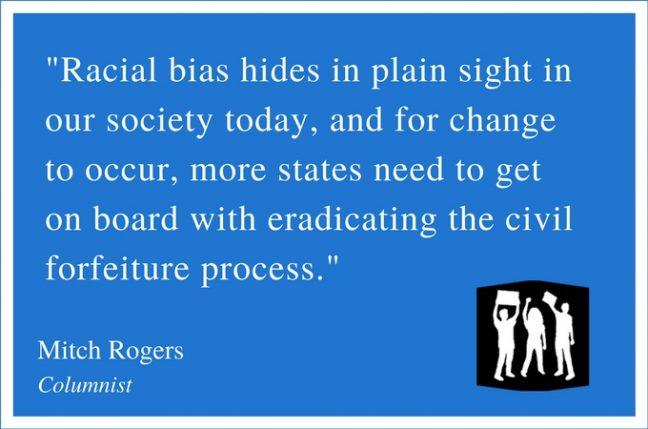Earlier this month, Gov. Scott Walker signed a bill into law that will require law enforcement officials to obtain a criminal conviction before taking someone’s cash or property. This law makes Wisconsin the 15th state to enact this legislation.
Civil forfeiture is a legal process in which law enforcement officials seize assets from those who are suspected to be involved in a crime. Under this process, a person doesn’t have to be explicitly charged with a crime or wrongdoing for their assets to be seized.
The concept of civil forfeiture has a history spanning back several hundred years, but in the U.S., forfeiture activity has increased substantially since the 1980s. The war on drugs saw a massive increase in forfeitures, as law enforcement officials tried to use them as a weapon against drug kingpins. Law enforcement officials have debated on civil forfeiture as a controversial reach of power for a long time.
Proponents tend to argue this is a necessary process, as it’s seen as a crucial tool in the war against the multi-billion dollar illegal drug industry. Civil forfeiture has also been a powerful ally to restore money stolen by fraud. Bernie Madoff, a former broker on Wall Street, was convicted of the largest financial fraud in US history. Authorities used civil forfeiture to obtain and return some of the stolen money. Many in favor of this process will argue it’s heavily monitored to ensure no foul play on behalf of law enforcement officials occurs.
Societal attitudes, government policy on immigration should reflect data trends
At the other end of the spectrum, critics of civil forfeiture claim it violates due process in that individuals are no longer considered innocent until proven guilty. The burden of proving one’s innocence shifts from the court to the civilian. In addition, civil forfeitures are not proceedings against people, but rather, against property. As a result, property owners aren’t granted equal constitutional protections they’d have if they were criminal defendants.
A process such as this can motivate police misbehavior by incentivizing them to seize property such as houses, vehicles and cash. According to Forbes, “most states and the federal government allow law enforcement agencies to keep 90 percent or more of the profits from assets they forfeit.” Assets like cash can be used for new vehicles and upgraded equipment. In Texas, forfeitures can even result in increased police salaries. The fact that police can use forfeited assets for their personal gain makes it clear that the temptation regarding civil forfeiture is a legitimate one.
In cities such as Philadelphia, according to an ACLU study, African Americans make up 71 percent of cash forfeitures without convictions. It’s clear that African Americans are disproportionately targeted in cases involving cash grabs. Philadelphia is merely one of several examples where minorities have the most to lose in civil forfeitures.
Wisconsin has made a significant step toward eradicating this behavior, but as is frequently the case with politics, there’s a catch. While Wisconsin has shifted the burden of proof back to the courts, there remain a few key loopholes. If the property owner fails to challenge the forfeiture in court after a waiting period of nine months, law enforcement officials can permanently obtain assets, regardless of whether a conviction is obtained or not.
Increase in robberies challenges how City Council thinks about addressing crime
Proponents of civil forfeiture will claim nine months is ample time to challenge a forfeiture in court, but hiring an attorney and paying legal fees frequently costs more than what the property lost is worth. Therefore, people are forced to walk away from their property fairly often.
Despite this loophole, this new legislation will inevitably help combat the police bias many minorities have felt in the last few years. Across the nation, a deep divide has grown between the police and minorities, particularly African Americans. Several disturbing videos of police officers shooting unarmed black men have gone viral, which has sparked numerous social activism groups.
This legislation is a step in the right direction and a step Wisconsin needed to take to do its part to battle injustice, and help ease tensions between law enforcement officials and minorities. Racial bias hides in plain sight in our society today, and for change to occur, more states need to get on board with eradicating the civil forfeiture process — or at the very least, implement a process similar to Wisconsin that assumes the the defendant innocent until proven guilty once more.
Mitch Rogers ([email protected]) is a junior majoring in economics.














